#afrikaans
Text
My favourite thing about (most) Germanic languages:
Norwegian: due (pigeon), drue (grape)
Danish: due (pigeon), drue (grape)
Swedish: duva (pigeon), druva (grape)
Dutch: duif (pigeon), druif (grape)
Afrikaans: duif (pigeon), druif (grape)
Frisian: duif (pigeon), druif (grape)
German: Taube (pigeon), Traube (grape)
A few notable outliers: English, Scots, Icelandic
#if you add an r pigeon becomes grape#language#languages#language learning#norwegian#norsk#danish#dansk#swedish#svensk#dutch#nederlands#afrikaans#frisian#frysk#german#deutsch#english#scots#icelandic#íslenskur#språk
10K notes
·
View notes
Text
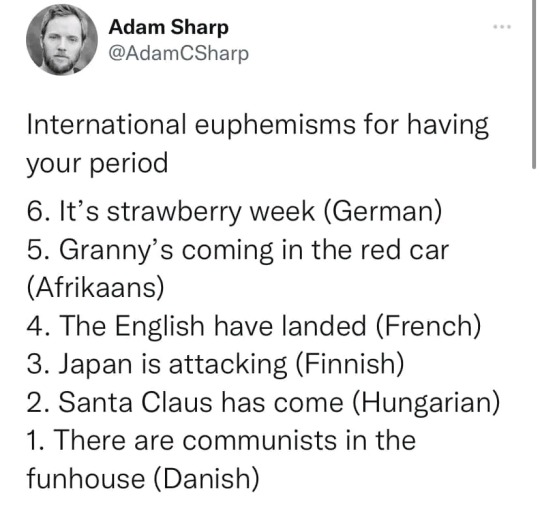
2K notes
·
View notes
Text

English (he/she) eats, Welsh ysa, Ancient Greek édei, Sanskrit átti and Polish je all stem from the same Indo-European verb. Over time, words change beyond recognition, undergoing regular sound changes and irregular alterations. Here's the family of eats.
#historical linguistics#linguistics#language#etymology#english#latin#dutch#spanish#german#scots#frisian#low saxon#limburgish#afrikaans#luxembourgish#yddish#sanskrit#proto-indo-iranian#latvian#lithuanian#russian#ukrainian#bulgarian#macedonian#old church slavonic#serbo-croation#slovene#slovak#czech#polish
132 notes
·
View notes
Text
Dutch and Afrikaans are objectively funny languages to English speakers but English is an objectively funny language to speakers of like every other Germanic language so it balances out.
#Dutch#Afrikaans#English#linguistics#linguistic#languages#linguist shitpost#shitpost#lingblr#germanic languages
73 notes
·
View notes
Text
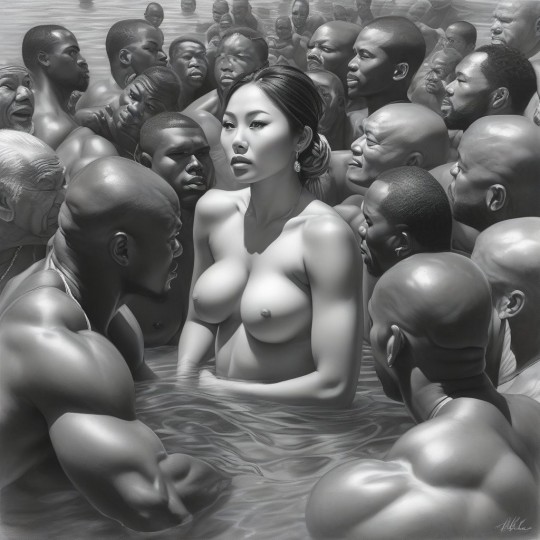
#hot asian babe#asian goddess#woman#beautiful women#woman beauty#mature woman#afrikaans#african#africa#lake#swimming#18+ content#18+ account#18+ only#18+ blog#sexy titts#amazing body#pinay#pinaygirls#sexy pinay#sketches#realistic#art#pencil
132 notes
·
View notes
Text
Magical Namibia 🏜️🐘🦒🌊🇳🇦 !.
#Namibia#Beauty#magical world#magic moments#magic destinations#downfalldestiny#downfall#life#Sahara#Animals#Africa#afrikan beauty#africa#afrikaans#afrique
78 notes
·
View notes
Text
mycology across the world !!
here is some mycology vocab in my language. ^^ i’d love to know what they are in yours.
mycology : mikologie.
fungus : swam.
mushroom : sampioen.
mould : muf.
lichen : korsmos.
my language is afrikaans :-)
#• finn's sillyposting lol •#||#language#afrikaans#english#fungi#fungus#mycology#mushroom#mushrooms#nature#earth#mould#lichen#linguistics
77 notes
·
View notes
Photo
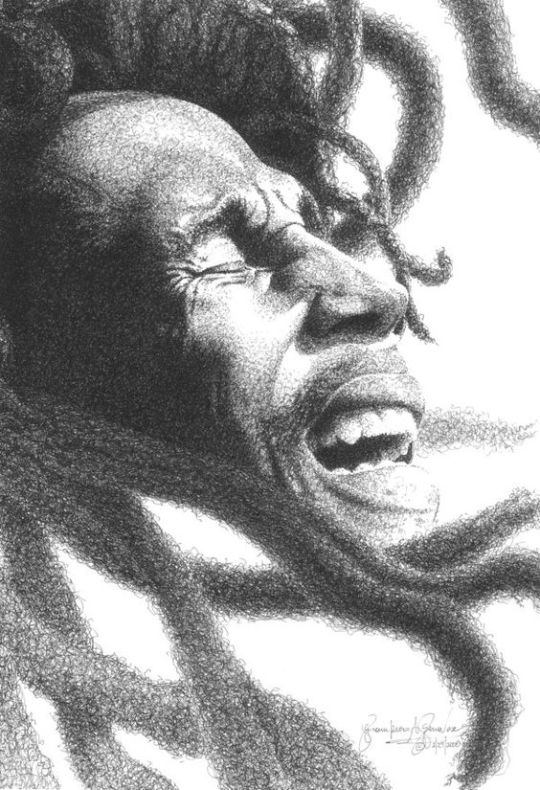
Afro Culture (My culture)
@woobosco
#woods#woodstock#woo#woo bosco#bosco woo#woo life#woo tribal#woo tribes#women#men#black men#wooski#afrocentric#african#african american#afro#afrofuturism#afrohair#afrikaans#Afro Culture#Afro Centric#afro curls#afro caribbean#afro cuban#black people#black panther#black history#black power#black#blackgirlmagic
135 notes
·
View notes
Text
Afrikaans needs a better word for universal than universele. the common misspelling universiële is better, due to the additional pulse from the break in the diphthong, but it is still not quite right. I need a word like heelaldelik, which is simultaneously common and cosmic
26 notes
·
View notes
Text

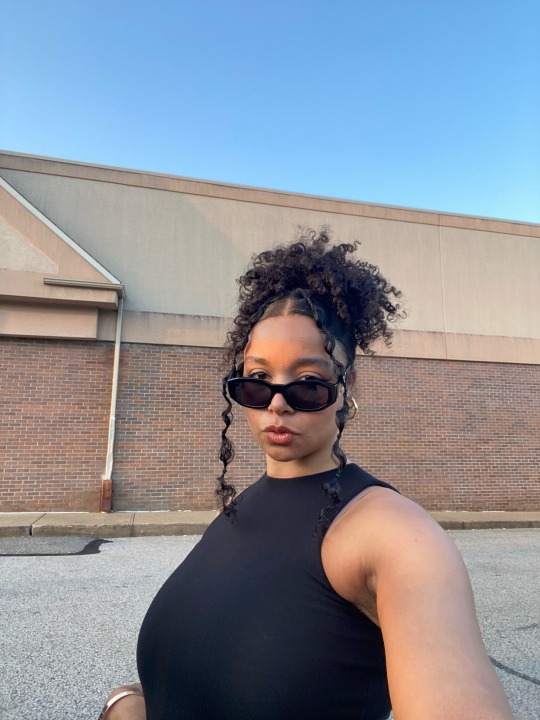
All black mami

#kriola#capeverdean#me#curvs#afrikaans#curlyhair#black is beautiful#body#self love#black love#boston
19 notes
·
View notes
Text
I often hear English speakers proclaim in exasperation that [Insert slightly less screwed up Germanic language here] has such long, awkwardly specific words but they fail to understand that most of these are created on the spot to satisfy a specific context, and because of how the language works they remain understandable despite maybe having never been uttered before.
Recently, a Polish friend of mine found out about the longest word in my language (Afrikaans), being:
"Tweedehandsemotorverkoopsmannevakbondstakingsvergaderingsameroeperstoespraakskrywerspersverklaringuitreikingsmediakonferensieaankondiging" (Yes this is an actual word), which means "issuable media conference’s announcement at a press release regarding the convener’s speech at a secondhand car dealership union’s strike meeting"
Let's do a step-by-step with my language, Afrikaans, slowly adding meaning to create a completely new word as an example.
Wys (Show/to show)
Verwys (literally 'To show toward', this would translate to 'Reference' as a verb in English)
Verwysing (Reference as a noun)
Cool, now we have a word made from scratch, let's add a little more complexity.
Verwysing + Indeks (Index) is Verwysingsindeks (An index of references)
Alright, now let's make another one.
Prys (Prize)
Digter (Poet) + Prys is Digtersprys (The poet's prize)
Digtersprys + wenner (Winner) is Digterspryswenner (Winner of the poet's prize)
One more time:
Onder (under, or in a more archaic form 'among')
Onder + houd(An archaic word for 'hold/to hold) is Onderhoud (An interview. Literally 'held among [people]'
Pers (Press, as in the news people) + Onderhoud is Personderhoud (Press interview)
Personderhoud + e (Plural suffix. This gets slightly complicated so I won't elaborate on why 'e' is used instead of 's' here despite both being plural suffixes) is Personderhoude
Now let's get a little bit mad, shall we? Let's put all these together.
Digterspryswennerspersonderhoudeverwysingsindeks
This singular word that won't exist or be used in any other context means "Index of references to the press interviews of poetry prize winners".
The general rule is "One concept, one word", and although the rules behind how to do this get a little complex at times, especially if you're still learning, but there's no rule in any Germanic language (as far as I'm aware, at least) saying that you can't pull an English and just say it as a sentence instead.
The beauty of Germanic languages (excluding the three wombats in a trenchcoat that is English) is that even with a toddler's knowledge of what's going on, words describe themselves to such an extent that you can get the meaning of fairly high-end concepts just from hearing the word.
Of course, this an extreme example. In most cases you won't have more than two or three or at most four words strung together, but the point stands.
This has been your ADHD driven linguistics lesson for the day.
Edit: Forgot to translate the first long word. Oops
8 notes
·
View notes
Text
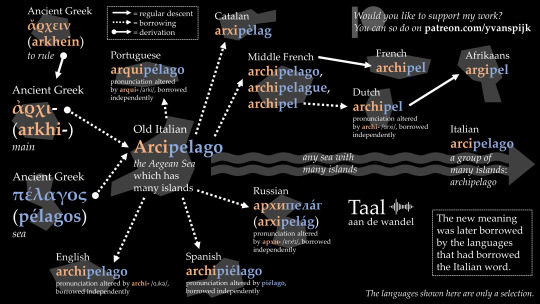
Archipelago comes from Italian arcipelago, which used to denote the Aegean Sea, a sea that has many islands. It literally meant 'main sea'. Arcipelago was borrowed by a large number of languages and underwent a series of shifts in meaning. The image shows how it changed.
#historical linguistics#linguistics#language#etymology#english#french#dutch#spanish#afrikaans#italian#old italian#russian#ancient greek#portuguese#catalan#middle french
104 notes
·
View notes
Text
Exploring untranslatable words unveils the intricacies of linguistic diversity. Consider the Hawaiian term "Aloha," encompassing love, affection, peace, and compassion – a multifaceted concept difficult to distill into a single English equivalent. In Haitian Creole, "Kouzin" refers to an extended family-like relationship, going beyond mere cousinship.
The Japanese term “Komorebi,” which beautifully captures the interplay of sunlight filtering through leaves. In Spanish, there’s “Sobremesa,” embodying the leisurely time spent lingering at the table after a meal, a social ritual deeply ingrained in the culture.
Moving to German, “Waldeinsamkeit” conveys the feeling of being alone in the woods and the connectedness with nature, a sentiment not effortlessly translated. In Portuguese, “Saudade” encompasses a profound sense of longing, a complex emotional state that doesn’t have a direct equivalent in many languages.
In Russian, “Pochemuchka” describes a person with an insatiable curiosity, while the Swedish “Mångata” captures the shimmering reflection of the moon on water. These examples showcase the intricate relationship between language and culture, emphasizing how some concepts are so intricately woven into the fabric of one language that they resist easy translation.
Korean introduces "Han," representing a complex blend of sorrow, resentment, and enduring resilience. The Chinese term "Yùyī" expresses the profound beauty of a moment that is both fleeting and transient. In Tagalog, "Kilig" encapsulates the exhilarating feeling of being romantically thrilled.
Portuguese contributes "Desenrascanço," embodying the ability to improvise resourcefully in challenging situations. Italian introduces "Sprezzatura," an effortless and nonchalant display of skill and style. Zulu presents "Ubuntu," conveying interconnectedness and shared humanity.
Tongan offers "Faka'apa'apa," a deep respect and humility towards others. Afrikaans contributes "Geselligheid," reflecting a warm sense of togetherness and camaraderie. Navajo introduces "Hozhǫ́," symbolizing beauty, harmony, and balance. In Warlpiri, "Ngarrka-ngku" encapsulates the profound interconnectedness between family and the land.
These examples illustrate the richness of linguistic diversity, where each language crafts unique expressions reflecting the depth of cultural experiences. While it's challenging to cover every language, these glimpses showcase the beauty of untranslatable words across a variety of linguistic landscapes.
#langblr#language#german#hawaiian#‘olelo#deutschland#spanish#portuguese#russian#korean#japanese#navajo#warlpiri#tongan#afrikaans#italian#zulu#chinese#tagalog#filipino#swedish#haitian creole#chatgpt#untranslated
10 notes
·
View notes
Text

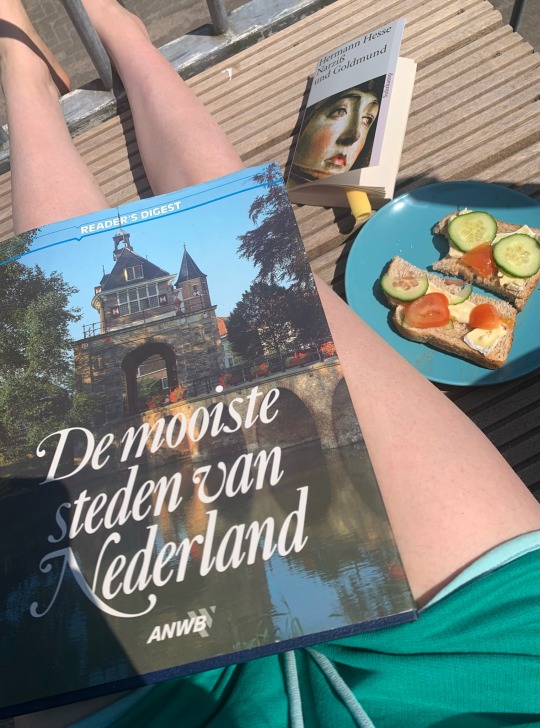
Books I got in May 2023 🇮🇸 🇿🇦 🇳🇱 🇩🇪
#polyglot#language blog#got the Dutch cities one from flea market on king’s day!!#language lover#foreign language#dutch#Netherlands#Afrikaans#Icelandic#mine#language books#langblr#bookblr#how long has it been since the last study-ish photo post#too many social media oh boy
18 notes
·
View notes
Text
PEACOCK, a Psychosexual Gothic Horror from South Africa, Premieres on IndiePix Platform December 8th, 2023
After violating the strict moral standards of The Foundation, the puritanical institution for young women in which she was raised, Anna Pohl (Tarryn Wyngaard) is sent to care for one of its founding members.
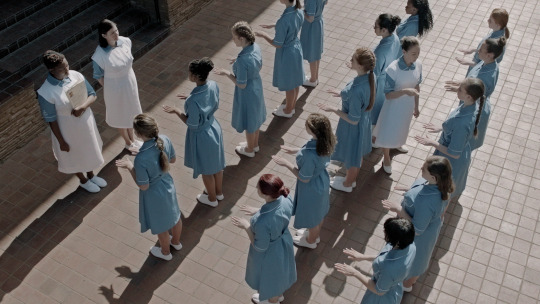
An Apartheid-era theologian living out his days in paranoia on his isolated farm, Sarel Cilliers (Johan Botha) suffers from frightening visions and demonic hallucinations. Haunted by her own feelings of guilt, Anna slowly gets pulled into Sarel's terrifying world as she tries to unravel the mysteries behind this sinister place and its connection to the devastating secrets being hidden by The Foundation.

An evocative and erotic South African gothic horror, PEACOCK explores the dark recesses of the Afrikaner psyche and its compromised past.

Directed by Jaco Minnaar, screenplay by David Cornwell and Jaco Minnaar, and starring Tarryn Wyngaard, Johan Botha, Ruan Wessels, Alida Theron, Liza Van Deventer, Nicola Hanekom, and Andre Stolz.
Making its north American premiere on SVOD service Indiepix unlimited on Amazon channels and via virtual cinema on December 8, 2023
The winner of the Winter FEAR Award – Best Horror Feature Film 2023, you can list to our interview with Jaco Minnaar and David Cornwell HERE.
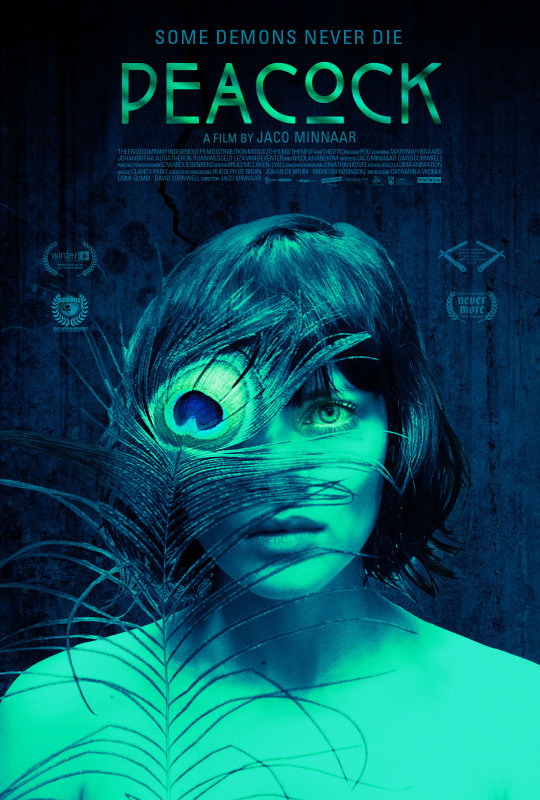
#film news#movie news#PEACOCKmovie#peacock#Indiepix#Jaco Minnaar#David Cornwell#Tarryn Wyngaard#horror#afrikaans#gothic
10 notes
·
View notes
Text
If any of ye have started creative endeavours in a minority language then this is a post to promote them!
Writing - fiction, non-fiction, poetry, blogs, fanfiction etc -, videos, art pieces, songs, anything! If you made it and it’s related to a language you think deserves more love then feel free to share it!
#originally this said irish then all Celtic langauges but I know a lot of ye are language enthusiasts & are interested in multiple languages#my own post#Gaeilge#cymraeg#gàidhlig#Irish#Welsh#scots gaelic#Cornish#every language I have ever heard of bar French and German has left my head#right just going to tag various languages now#Hebrew#yiddish#Polish#Tamil#Maori#Kurdish#afrikaans#Catalan#valencian#Galician#basque#Hawaiian#Cherokee#navajo#Cree#yes I was just on lists of minority & unofficial languages give out to me
180 notes
·
View notes